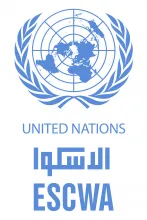The Economic and Social Commission for Western Asia (ESCWA) was founded in 1973 and is one of five UN Regional Commissions. Headquartered in Beirut, Lebanon, ESCWA is mandated to support the economic and social development of its 18 member States, promote regional integration, and represent the concerns of its member States at the global stage.
It analyses socioeconomic conditions, strives to link development knowledge to policy and advises member States on inclusive and sustainable development. In short, it serves as a voice of the region, creating platforms for deliberation, coordination and consensus building among member States to influence global forums; a thinktank of the region, undertaking innovative research and supporting quality data collection and analysis for evidence-based policy-making; and an advisor to the region, providing regional, sub-regional and national capacity building and technical advisory services and supporting national efforts to adopt norms and policies.
A dedicated Statistics Division in ESCWA was established in January 2008, and since then its key mandate has been to strengthen the statistical capacities of Arab countries, as well as build a statistical system of the Arab region.
Priorities as a partner of the Global Partnership for Sustainable Development Data
ESCWA plays a leading regional role in shaping the priorities of the 2030 Agenda for Sustainable Development and the Sustainable Development Goals by harmonizing a regional view and advocating for Arab countries at the global scene. The Statistics Division in ESCWA carries out the following core functions:
- Acting as the regional focal point for the Statistics Division of the Department of Economic and Social Affairs, United Nations organizations, other international and regional organizations and Member States;
- Organizing and coordinating the meetings of the ESCWA Intergovernmental Statistics Committee, meetings of expert groups and statistical capacity-building workshops and seminars with a view to strengthening national statistical systems and harmonizing official statistics in the ESCWA region;
- Coordinating the statistical data work of the ESCWA secretariat and the collection, production and dissemination of statistics in print and electronic media and through an online database.
The Statistics Division of ESCWA aims at achieving a tangible impact on the ground, whether through the introduction of new surveys or improvement to existing statistical surveys and censuses, addressing issues of institutional setup, helping national statistical systems in formulating national strategies for development of statistics for 2030 Agenda of Sustainable Development, statistical legislation, facilitating dialogue between policymakers and statisticians and between producers and users of official statistics and providing a regional forum for exchange of experience in official statistics among member countries.
Together with nine other statistical entities of the UN Secretariat, the Statistics Division currently implements a capacity development Programme on Statistics and Data. The Programme is structured into four Pillars corresponding to statistics on all three components of sustainable development (economic, social, environmental), including a cross-cutting Pillar covering institutional frameworks, managerial issues, technology and geospatial information.

